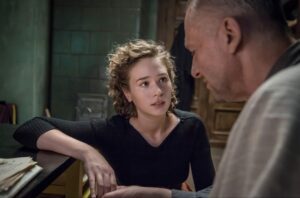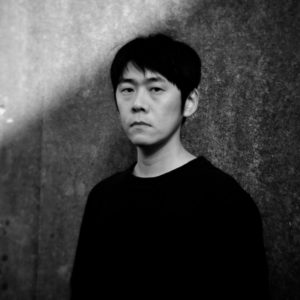Englishman Michael Pattison may be one of the younger film professionals, but he has managed to build an enviable career over the past decade. His reviews have been published by Sight & Sound, IndieWire, Senses of Cinema, MUBI, BBC Radio, Estonia's Sirp and Slovenia's Ekran and KINO!. He has worked as a programme consultant with numerous film festivals, including Kino Otok in Izola. He has shared his knowledge with emerging critics at workshops in Tallinn, Warsaw and Prizren, and since 2019 he is one of the directors of the Scottish arts organisation Alchemy Film & Arts. His visit to Izola in 2022 was the occasion for this conversation.

"Canons express the property relations of the context in which they were formed: these relations are class-based, gendered and racialised."
Is cinema dead, dying or only sleeping?
Oh, it´s alive in all the places it needs to be.
What were the origins of your cinephilia?
In 1992, seeing Dan Aykroyd’s massive face on a giant cinema screen in My Girl. I was mesmerised by all the scratches, blemishes and cigarette burns on the print, without at the time knowing what a film print was.
Once every decade, Sight & Sound publishes the Greatest Films of all Time list. We are on the brink of the next installment. What is your opinion about film canons and canonized directors? Do you join the debates?
What’s the debate, whether Citizen Kane is better than Daughters of the Dust? Canons express the property relations of the context in which they were formed: these relations are class-based, gendered and racialised. They inevitably say more about the canonisers than the canonised.
„I´m deeply sceptical of film festivals as a cultural model and even as a public engagement strategy."
We almost met at the last Kino Otok, a festival you visit regularly. You also write for Slovenian film publications. How did this Slovenian connection develop? What do you think about Slovenia?
I first attended Kino Otok as a critic, in 2014, and loved its intimacies and chemistries. I’ve been extremely lucky to return to the festival as a programmer, and to Ljubljana as a friend, admirer and even filmmaker!
Who profits the most from film festivals: the industry, filmmakers or audiences?
From the perspectives of actual financial profit and of social and political disruption, I’m deeply skeptical of film festivals as a cultural model and even as a public engagement strategy. Loads of different people do benefit from festivals in loads of different ways, though.
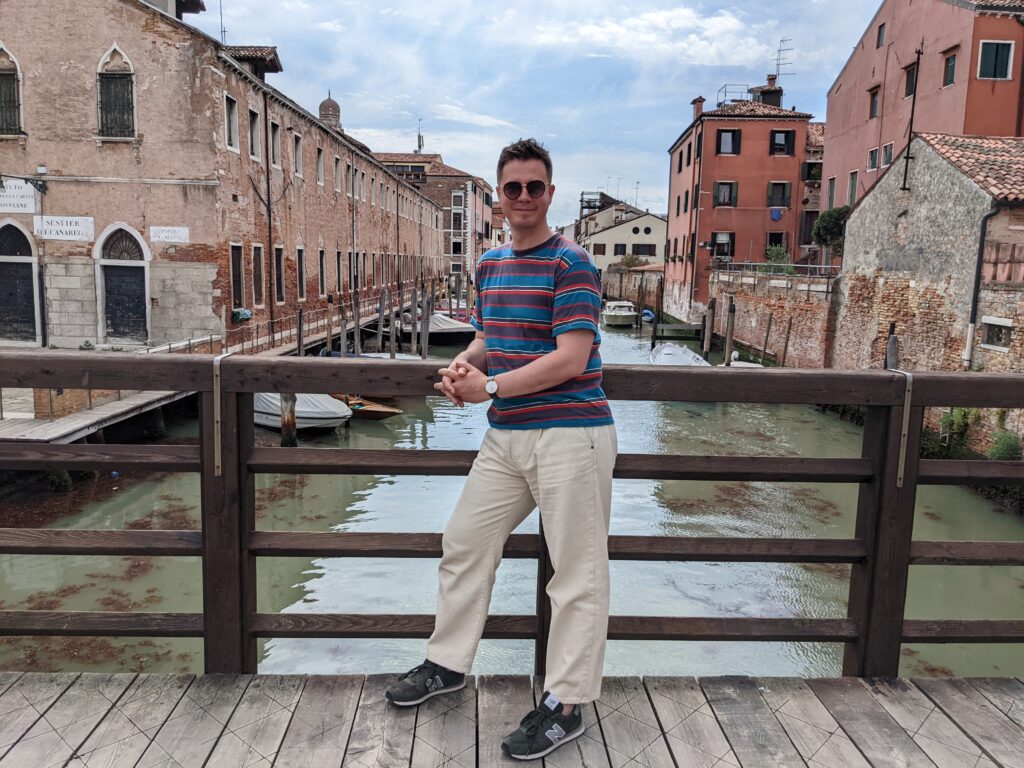
„How wealth is distributed, and how in turn society and its cultural activities are organised, ist the key political question we face.“
How did you get from being a critic to the job of a co-director of a film festival? What is the Alchemy Film Festival?
I’m not sure that I can give a concise summary of that trajectory or transition; everything that happens creates the conditions in which other things can happen, and all you can do along the way is widen your chances and exercise certain privileges. I’m still a critic, and embed my practice now in ways that are social and lived. Anyway, Achemy is a year-round organisation that works with artists and communities by investing in experimentation, collaboration and film.
Should critics also get practical filmmaking or organizing experience to better understand the medium?
I don’t think the work of criticism should be isolated from other forms of cultural production and management. So yes.
What is the bigger threat for film in general: financing or politics?
How wealth is distributed, and how in turn society and its cultural activities are organised, is the key political question we face.
„If there needs to be a future for film criticism, it will find one."
Is there a future for film criticism?
Is there a past, is there a present? If there needs to be a future for film criticism, it will find one.
What advice would you give to young film critics?
Liberate yourself from the unsustainable freelance hustle as early as possible by earning money elsewhere. That way, you’re not writing in a state of desperation, you’re not trying to monetise your own life and emotions. Also, be kind and generous and engaged even and especially when you’re angry.
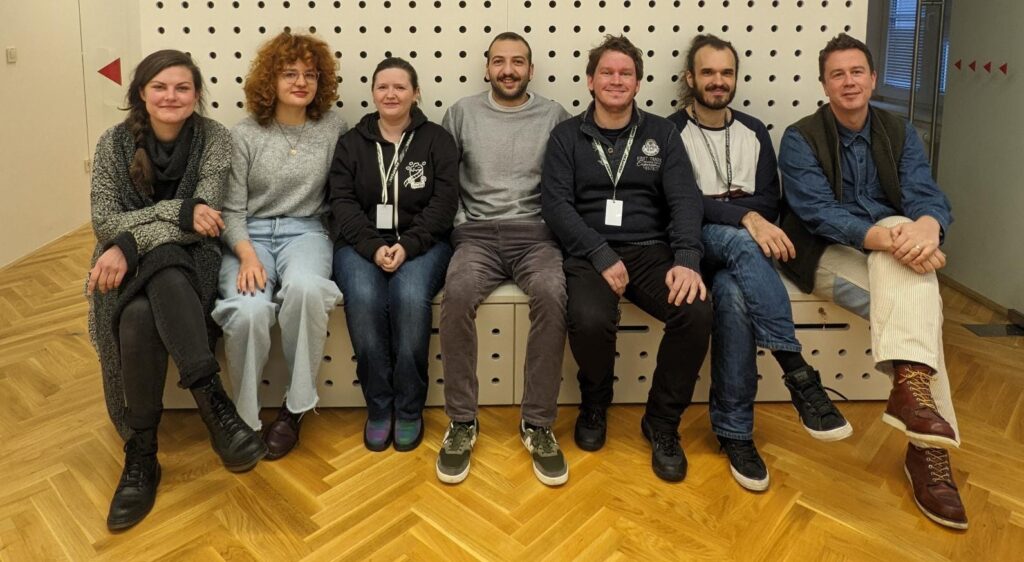
„A portrait of the everyday rhythms and rituals that define some of the town's cultural identities.“
At Kino Otok, you also co-presented the documentary feature film Notes from a Low Orbit by Mark Lyken, a project with some similarities to the work of James Benning or Nikolaus Geyrhalter. Why did you choose this film out of the programme of your festival?
Mark’s film was made in Hawick, in collaboration with its residents and communities, during an artist residency with Alchemy Film & Arts. We produced and commissioned it, a portrait of the everyday rhythms and rituals that define some of the town’s cultural identities. It seemed like an obvious and generous thing to do so soon after we’d screened the film for the first time at our own festival: to share a bit of Hawick in a festival setting of similar size and scope, as a way also of discussing what we do as an organisation and how we operate.
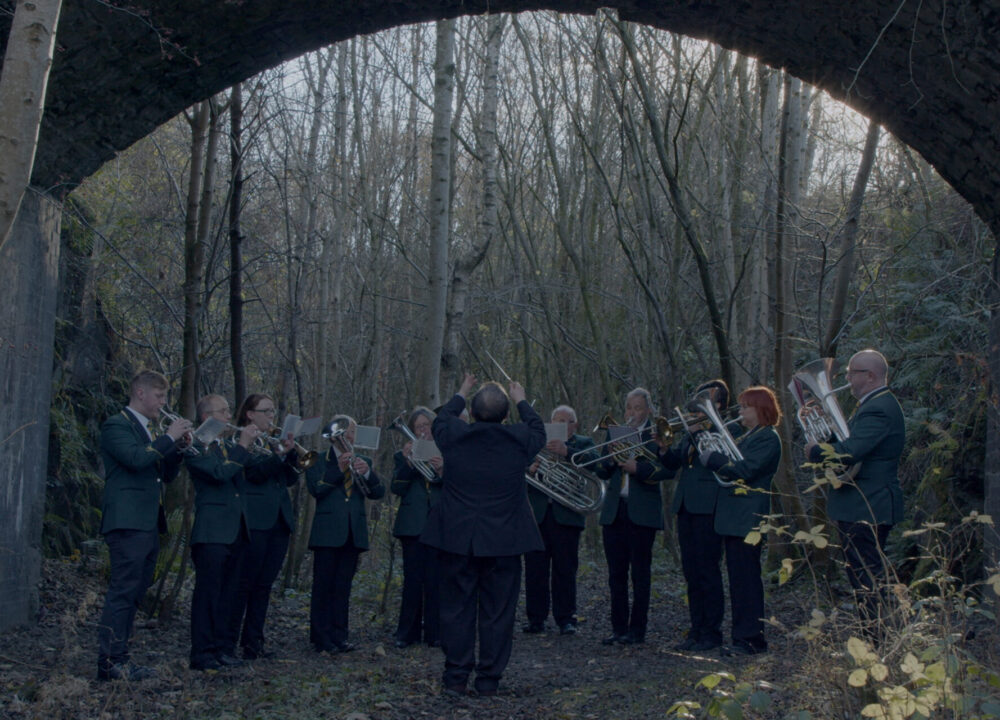
„Cinema is a social experience.“
Digital versus analog film: does the critic within you have the same preferences as the festival director in you?
That’s a good question. One of my favourite filmmakers is James Benning, whose films I’ve had the pleasure of seeing from 16mm. But I’m very unlikely to programme his work as a curator. Why would we want to mimic and repeat others, when we have an amazing opportunity and very limited time and resources to discover, platform and advocate for other voices?
As a critic I would crave and seek cinema experiences in which I was the only person in the room, and/or expect a sacred silence and uninterrupted attention from fellow audiences. But now, I’m not so precious; cinema is a social experience and there are different forms of engagement.
If you´d have the means, which classics would you restore? Why is film restoration a problematic issue in some countries?
I’m not aware of the problematics of film restoration, but I suspect it’s to do with an uneven distribution of educational and technical resources. None of my classics are in need of restoration. The films deserving of this care and attention are ones I don’t know yet.
„Criticism needs to be patient and continous if it is also to be kind and hopeful.“
Are Netflix, MUBI and other streaming platforms a blessing or necessary evil these days?
These should never be either-or scenarios, because to castigate the mode of provision always risks castigating its demographics. They’re no more a blessing or necessary evil than cinema chains that don’t pay their workers properly or recognise unions, or distributors that monopolise cinema screens through methods of coercion and saturation.
Do you think that visual literacy should be emphasized today more than ever?
I don’t think anything is uniquely bad about the present moment. To speak in such terms is itself a form of crisis. Criticism needs to be patient and continuous if it is also to be kind and hopeful. But yes, I think any educational programme emphasising visual and digital literacy is to be welcomed.
